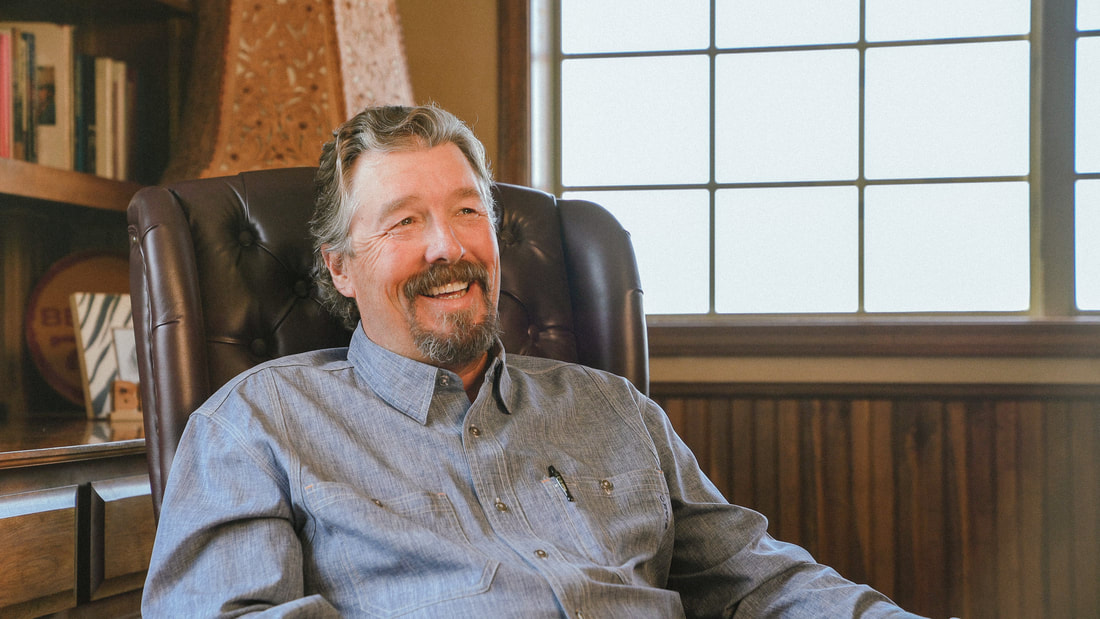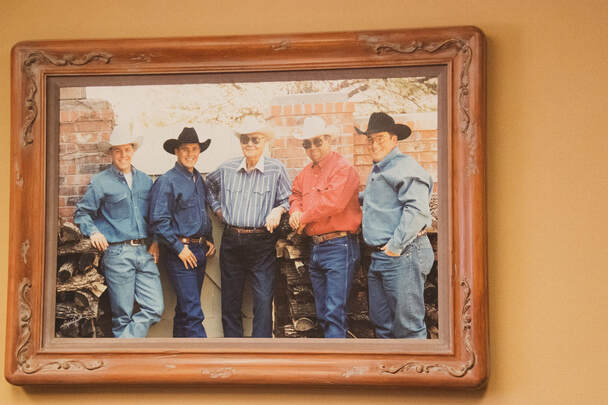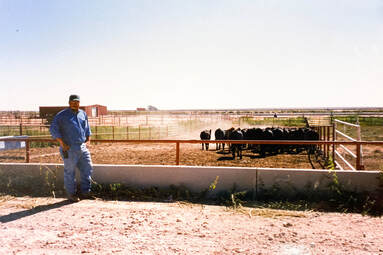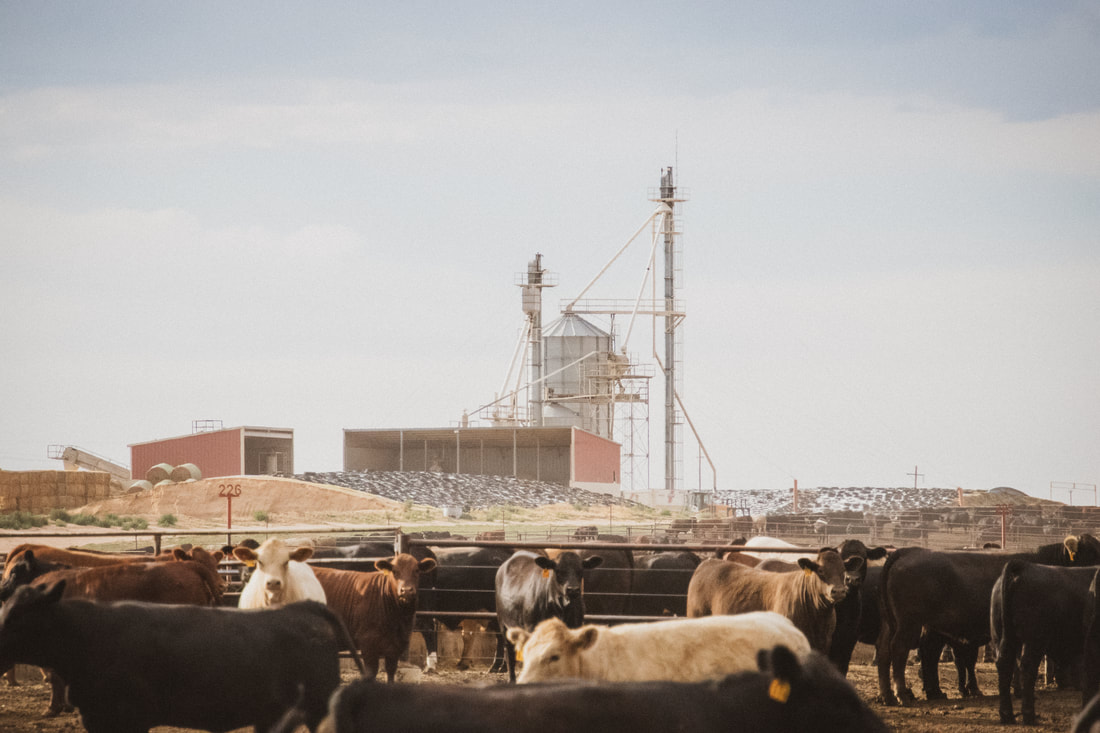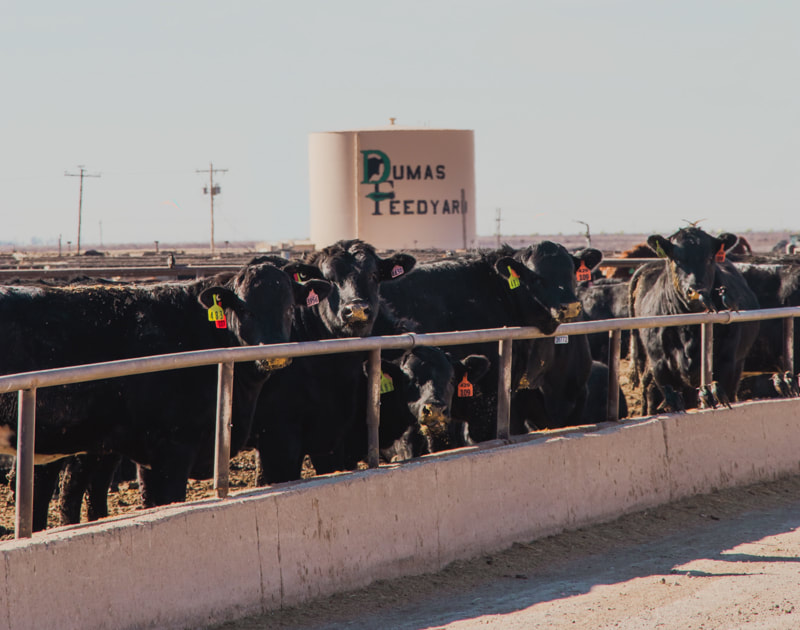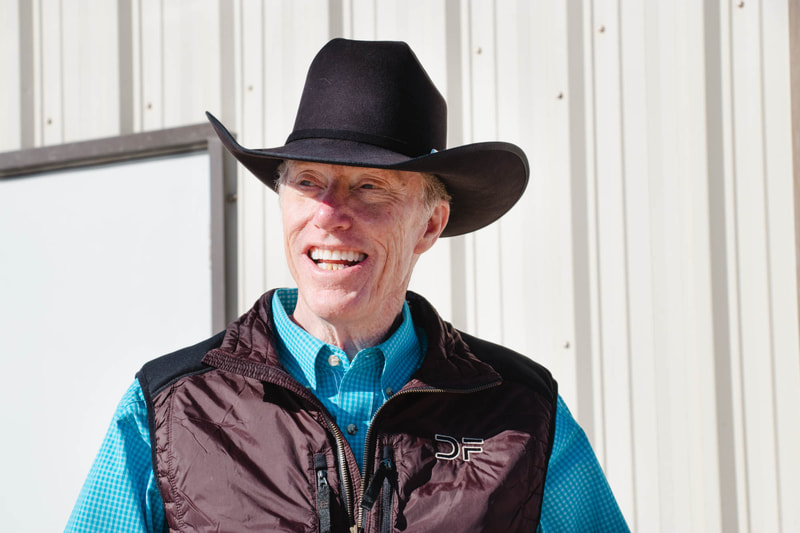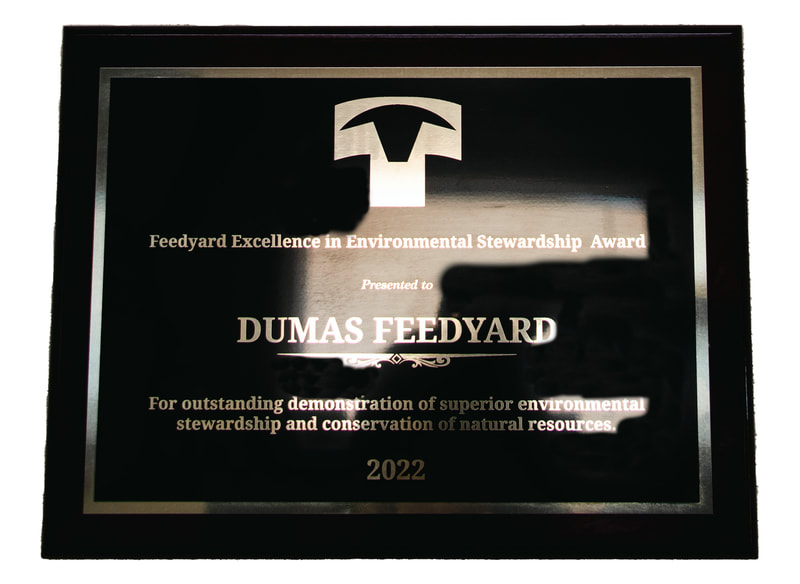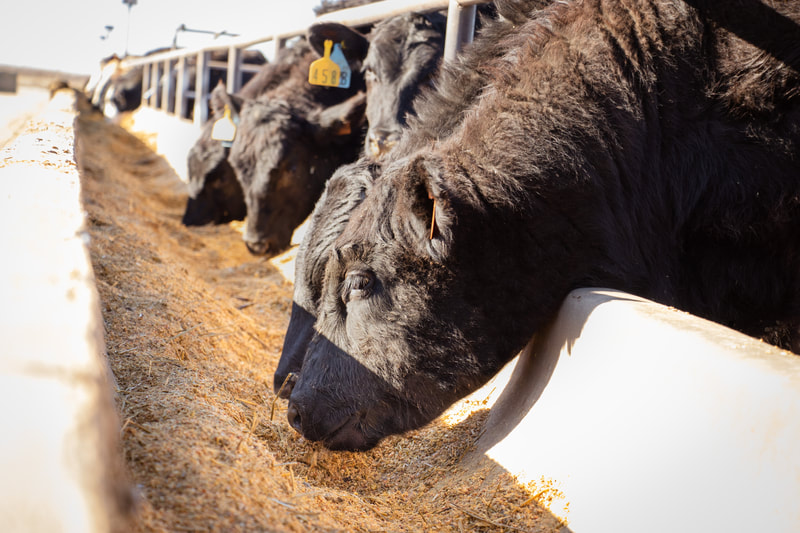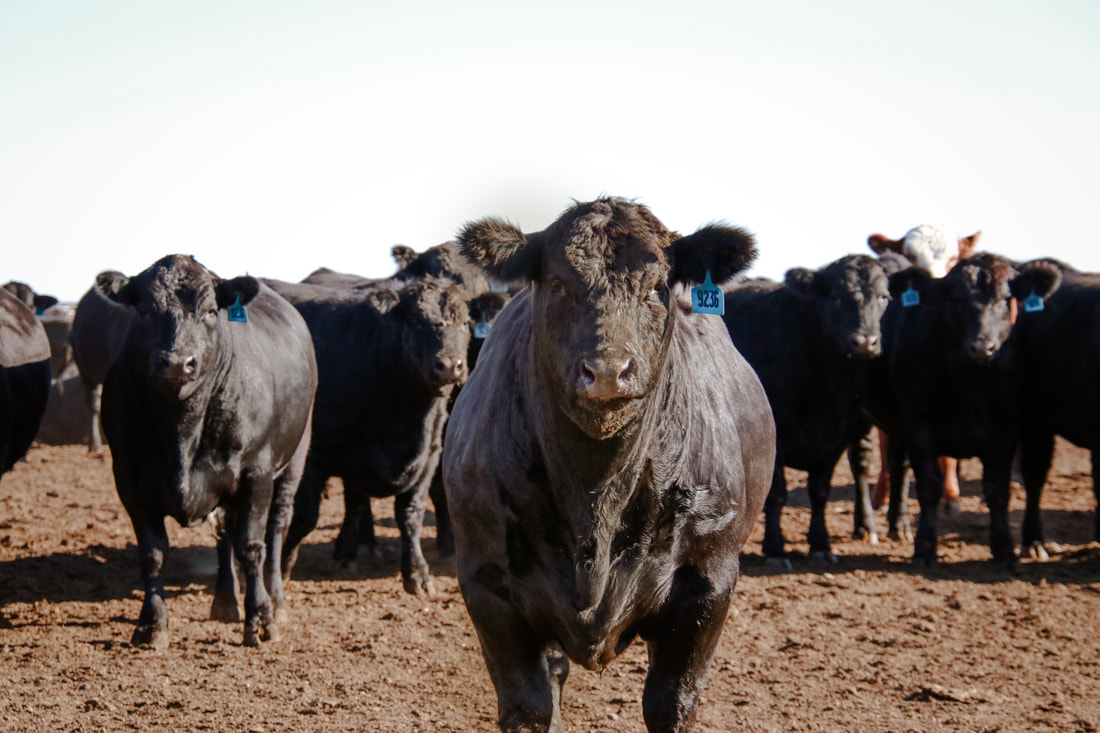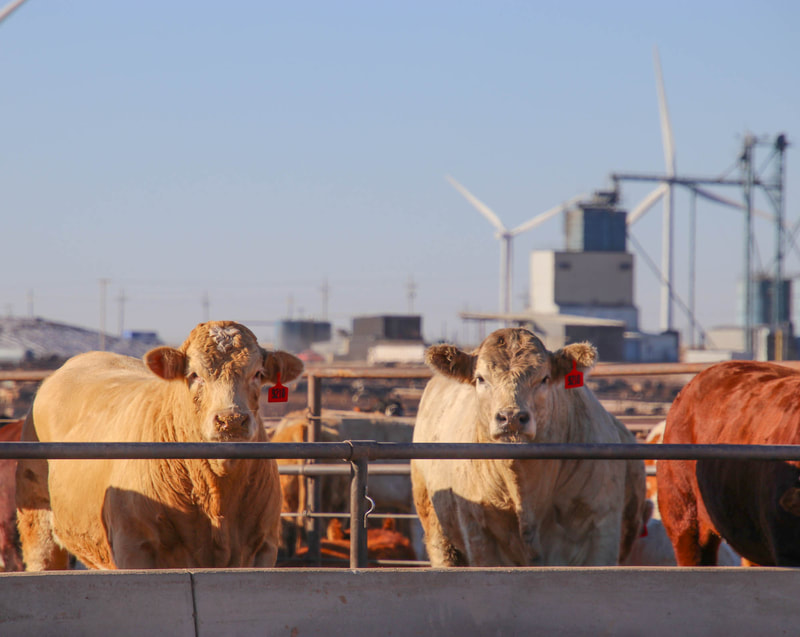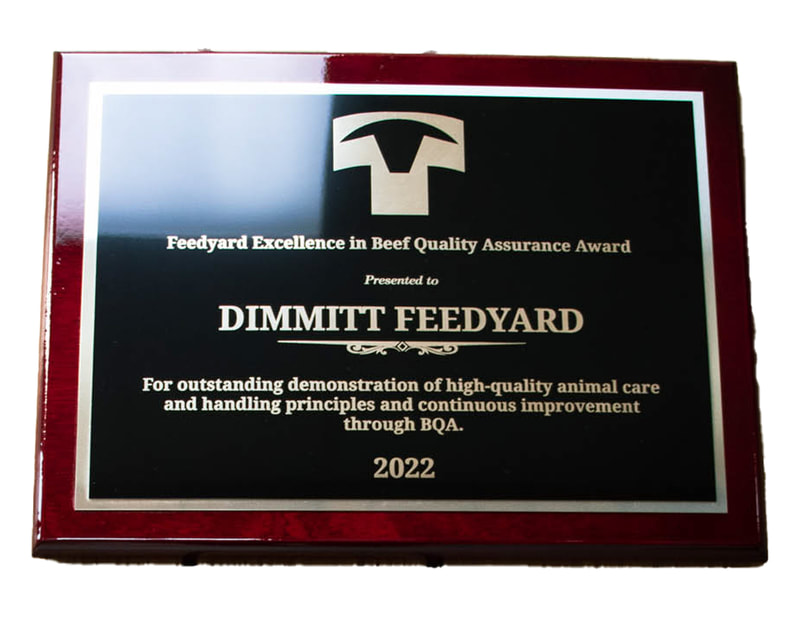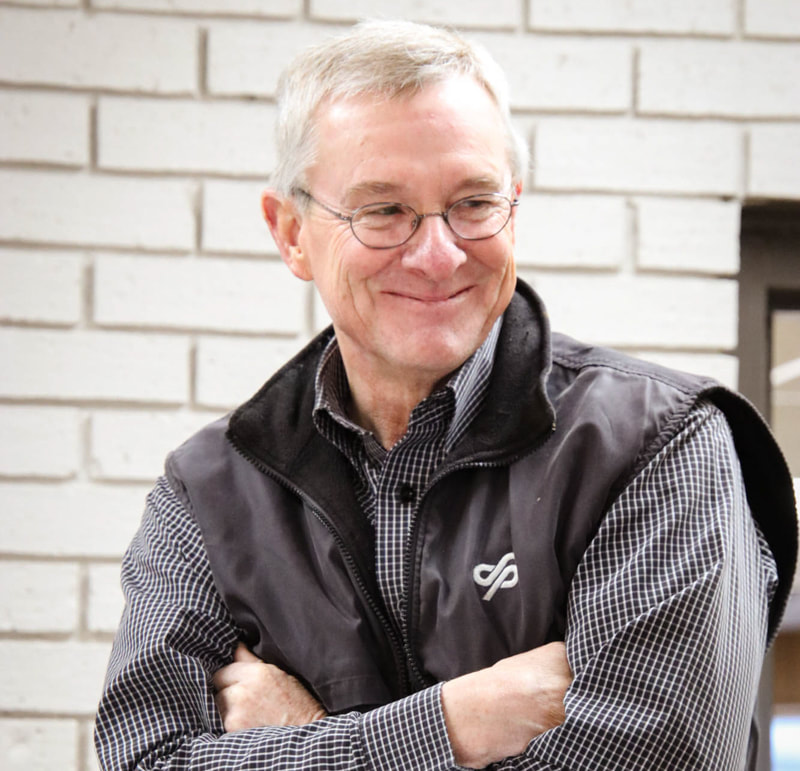|
By Hattie Robb
From farming to feeding cattle, production agriculture has always been in the cards for Michael Bezner.
“I enjoy growing things and the lifestyle that encompasses agriculture. I think it’s just in my DNA,” he says with a laugh. Growing up on his family’s farm and stocker operation in Dalhart, Bezner worked alongside his grandfather A.J. “Doc”, his dad, Jody, and his two brothers, Mitchel and Stephen, before heading to college. Bezner attended Texas A&M University where he studied animal science and was a member of both the meat and livestock judging teams. After graduating, Bezner worked under Bob Price in the livestock analyst office at the former Cargill Investor Services in Chicago. But the windy city blew him back to the family business in 1991, and Bezner has been preserving that same lifestyle ever since. Proving there’s no place like home, he and his wife, Camille, currently reside in Dalhart and have three daughters, along with one granddaughter. “I always knew I’d end up back here. Sure, we have good days and bad days, but there’s nowhere else I’d rather be.” From the Ground Up With farming in his blood and a desire to keep producing, Bezner decided to expand the family business in 1997 by building what is now a 20,000-head capacity feedyard in Texline, known as Bezner Beef. “I saw several synergies like manure availability, crop marketing and residue utilization between farming and feeding cattle that have proven to be beneficial for both sides of our business,” he says. Building a feedyard from scratch was no easy feat, and Bezner was determined to do it right the first time. Before breaking ground, he toured several operations in cattle feeding country and sought guidance from experienced industry mentors ranging from feedyard owners, managers, nutritionists, veterinarians, engineers and more. He researched everything from dirt work to mill operations to cattle handling so he could ensure cattle at Bezner Beef would be cared for in the best environment possible. The next step was to fill pens. According to Bezner, developing relationships was crucial in obtaining and keeping customers. He managed to do just that and shipped Bezner Beef’s first round of finished cattle in 1998. “It was a process, but people gave us a try,” Bezner says. “We had a tremendous head start because my dad and grandad have been here for more than 30 years. I was just lucky to have family before me that had a really good reputation in terms of honesty and integrity, and our customers trusted in us.” That reputation of trust remains today as Bezner steps into his new role as the 2023 Chairman of Texas Cattle Feeders Association.
United Front
Bezner’s history with TCFA goes back to the 1970s as his family were early members of the organization. After witnessing firsthand what TCFA does for its feedyard members, he decided to get involved and participated in its leadership program in 2002. “The services we are able to utilize with TCFA staff make life much easier for the smaller, independent feedyards,” he says. “From their Beef Quality Assurance (BQA) program to the environmental visits and insurance, it keeps us from having to hire more employees to do these jobs.” From there, he sat on several TCFA committees and served his first term on the TCFA board of directors from 2006 through 2008. After again being named to the board, he was elected as the 2021 vice chairman, then chairman-elect in 2022. He took the reins of chairman in 2023. Like all things in life, the more involved he became with the organization, the more he learned. That is especially true when it comes to TCFA’s political presence in both Austin and Washington D.C. With the Biden administration’s new definition of Waters of the United States (WOTUS) and the U.S. Fish and Wildlife Service (FWS) action to list the lesser prairie chicken as endangered, TCFA, along with Bezner, hit the ground running this year to represent cattle feeders at both the state and federal level. In the months ahead, he is also ready to confront other key topics like fake meat labeling and traceability. Bezner notes it is important to keep a united front on these issues not just with TCFA members but with producers in other state associations, too. “I think with TCFA’s leadership, we can find common ground on these issues we all are facing,” he says. “We have to join forces and make sure that we keep a business environment in our industry so that we can be successful and continue to work without adding more costs and regulations.” Part of that continued success also relies on consumer trust—something Bezner is determined to earn. When asked what he wants the world to know about cattle feeding, Bezner stressed producers’ daily dedication to responsibly raising high quality and nutritious beef. “It’s so important for consumers to have faith in our product,” he says. “Whether it’s managing our natural resources, ensuring cattle health and wellbeing or taking care of our employees, everything we do affects our bottom line. So, we have every incentive in the world to produce beef in the safest and most efficient way possible.” Those incentives of efficiency prove true as Bezner points out U.S. farmers and ranchers produce 18 percent of the world’s beef with only 6 percent of the world’s cattle population. Bezner credits this with industry advancements in technology, nutrition, cattle genetics and an overall desire to maintain livelihoods for generations to come. From producing beef responsibly to representing cattle feeders’ interests at the capitol, TCFA President and CEO Ben Weinheimer says consumers and TCFA members alike can trust in Bezner to get the job done. “Michael Bezner encompasses everything a strong leader should be,” Weinheimer says. “His hard work ethic and genuine love for the industry is contagious, and we are lucky to have him represent our membership.” During his leadership, Bezner invites the input of all TCFA members. “I am honored to serve as chairman,” Bezner says. “I look forward to accomplishing the goals of TCFA set by our members. I ask that anyone with concerns or ideas know that my door is always open. We are in this together, and I want to know what you are thinking.” With his lifetime of production experience, this industry isn’t just a passion of Bezner’s. It’s his home. And he is ready to do everything in his power to protect it. By Madeleine Bezner TCFA Excellence in Environmental Stewardship and Beef Quality Assurance Award Recipients
Dimmitt Feedyard, owned by Dean Cluck Feedyard Inc. and managed by Ben Fort, received the 2022 Excellence in Beef Quality Assurance (BQA) Award for its outstanding commitment to beef quality assurance. Dimmitt Feedyard is located west of Dimmitt, Texas, in the Texas panhandle. The operation is a 50,000 head capacity feedyard that feeds both company and customer cattle.
BQA begins day one of every new hire at Dimmitt Feedyard as training is integrated into the orientation process with a video presentation conducted in both English and Spanish. “The purpose and content are to communicate a comprehensive approach that is an expectation of each and every employee at Dimmitt Feedyard,” Ben Fort said. “Everyone takes this responsibility personally, and we take the outcomes personal as well.” Fort explains that the people at Dimmitt Feedyard and their daily commitment to enhance consumer confidence in the beef industry is what promotes the company’s success when it comes to best BQA practices and success. “Dimmitt Feedyard management and owners believe an excellent BQA program is intense on the front of all personnel and productions system,” Fort said. “It’s also a continual improvement effort for us.” Transparency is a key component when any new technology or best management practices are implemented. Dimmitt Feedyard strives for “zero corrective actions needed” after any in-house audit. Everything from feed manufacturing and delivery to pen maintenance and manure removal is documented by employees using technology. Additionally, accurate and accessible health records are maintained daily and are the responsibility of trained accounting clerks and trained cattle processing and doctoring crews. As part of Dimmitt Feedyard’s quest to cultivate a strong work environment, supervisors meet weekly on Mondays throughout the year to communicate each department’s production and BQA plans for the upcoming week, along with reporting opportunities for improvement to existing management practices. Visit Dimmitt Feedyard on any given day and you’ll find the employees are the foundation of its BQA program. “Our success is based upon their hard work and dedication,” Fort said. “The employees are committed and take these standards personal and strive to live above and beyond the standard.” Beyond the employees at Dimmitt Feedyard, the management team hosts TCFA Feedyard Technician students and students from WTAMU’s Feedyard Management class throughout the year. “These audiences allow for BQA practices to be communicated as the standard or foundation for all production decisions,” Fort said. “Dimmitt Feedyard has taken the approach to focus on communicating these BQA principles to the next generation.” Cattle feeding is a multi-generational, resilient industry focused on responsible stewardship of both the land and the cattle that occupy it. TCFA congratulates Dumas Feedyard and Dimmitt Feedyard on their continued dedication to producing sustainable, wholesome beef for consumers worldwide. |
Categories
All
Archives
June 2024
|
About TCFA |
Get Involved |
|

